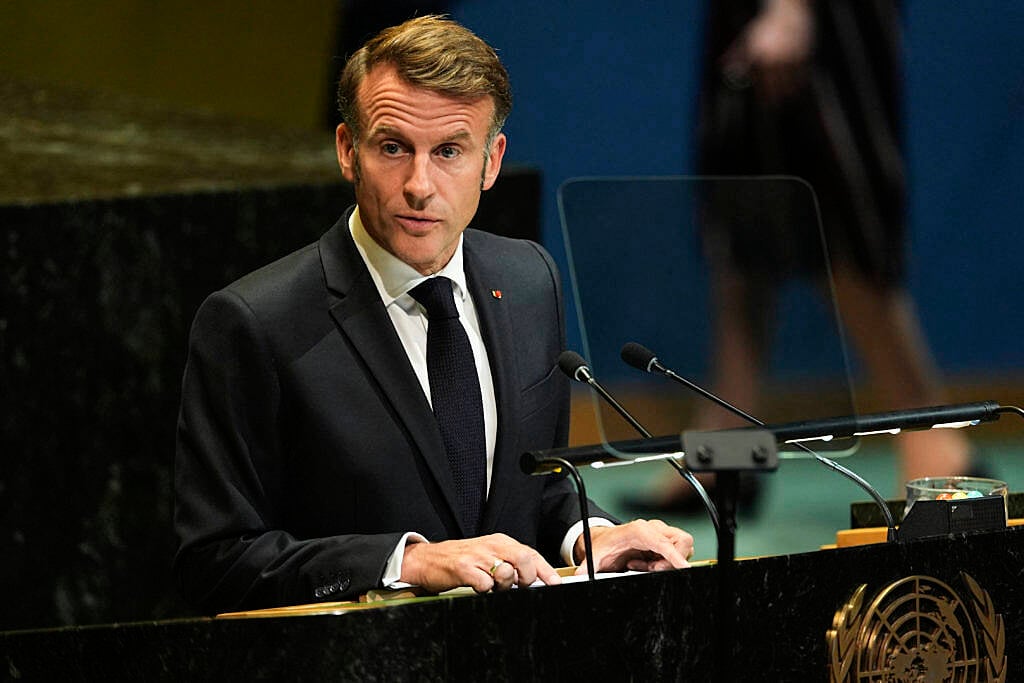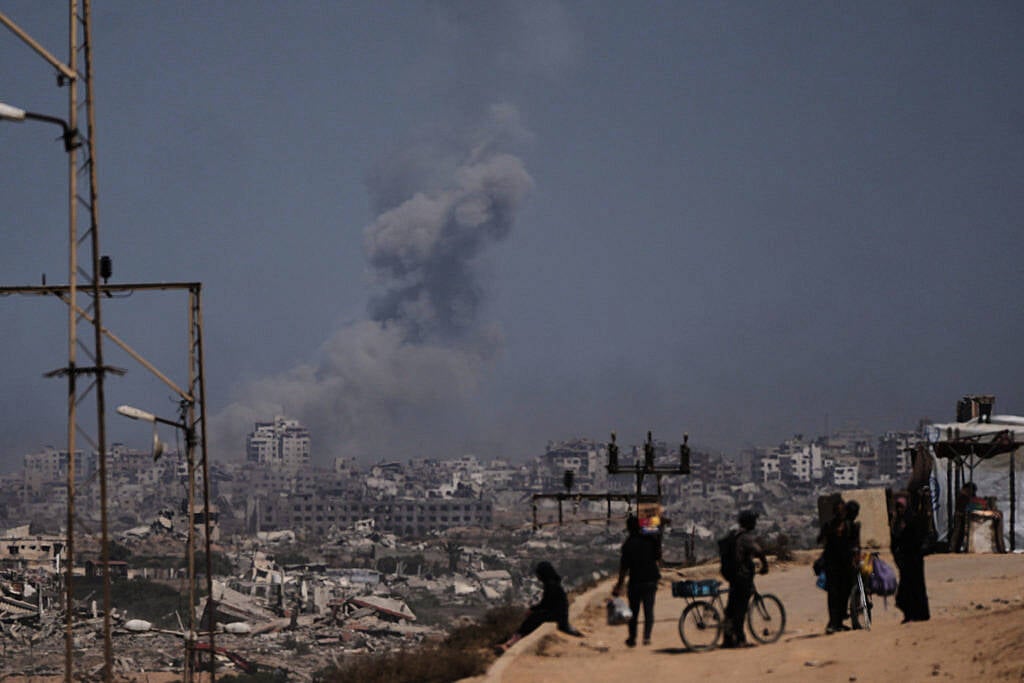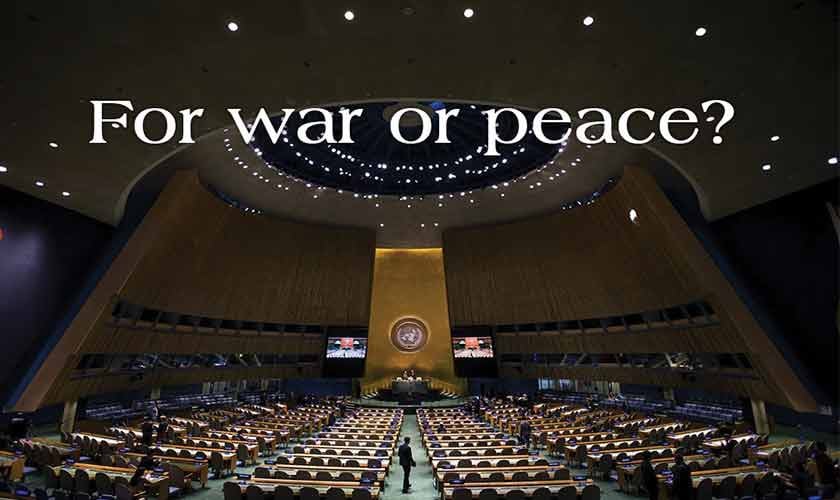France has recognised Palestinian statehood at the start of a high-profile meeting at the United Nations aimed at galvanising support for a two-state solution to the Middle East conflict. More nations are expected to follow, in defiance of Israel and the United States.
French President Emmanuel Macron’s announcement in the UN General Assembly hall received loud applause from the more than 140 leaders in attendance.
“True to the historic commitment of my country to the Middle East, to peace between the Israelis and the Palestinians, this is why I declare that today, France recognises the state of Palestine,” Emmanuel Macron said.
The Palestinian delegation, including its UN ambassador Riyad Mansour, was seen standing and applauding as the declaration was made. Mahmoud Abbas, the Palestinian president, was also seen applauding on a live-camera view after the US government banned him from attending the UN gathering in person.
The meeting and expanded recognition of Palestinian statehood are expected to have little, if any, actual impact on the ground, where Israel is waging another major offensive in the Gaza Strip and expanding settlements in the occupied West Bank.
Macron announced recognition of the state of Palestine at the start of the meeting, during which several world leaders were expected to speak.
UN Secretary-General Antonio Guterres said statehood for the Palestinians is a right, not a reward. This statement appeared to push back against the Israeli government, which argues that recognising statehood rewards Hamas after its October 7 attack that set off the war in Gaza two years ago.
The UK, Canada, Australia, and Portugal recognised the state of Palestine on Sunday, and the Palestinians expect a total of 10 countries to follow suit in the coming days.
Around three-quarters of the 193 members of the United Nations recognise Palestine, but major Western nations had until recently declined to do so, saying a state could only come about through negotiations with Israel.
Palestinians have welcomed these moves towards recognition, hoping they might someday lead to full independence.
The creation of a Palestinian state alongside Israel in the West Bank, Gaza, and East Jerusalem — territories seized by Israel in the 1967 Middle East war — is widely seen internationally as the only way to resolve the conflict, which began more than a century before Hamas’s October 7 attack.
Israeli Prime Minister Benjamin Netanyahu’s government opposed Palestinian statehood even before the war and now says such a move would reward Hamas, the militant group that still controls parts of Gaza.
A UN official brushed off such threats, saying efforts to bring about a two-state solution should continue regardless of Israel’s actions.
“I think we have to be determined in achieving the goal that we want to achieve, and we cannot be distracted by threats and intimidation,” said UN spokesman Stéphane Dujarric.
Netanyahu is under pressure from his far-right coalition to move ahead with annexation, but the United Arab Emirates — the driving force behind the 2020 Abraham Accords, in which the UAE and three other Arab states forged ties with Israel — has called annexation a red line, without specifying how it could affect the two countries’ now close ties.
Netanyahu said he would decide on Israel’s response to the Palestinian statehood push after meeting US President Donald Trump at the White House next week — their fourth meeting since Trump returned to office. The Israeli leader is set to address world leaders at the UN on Friday.
The Trump administration is also opposed to growing recognition of a Palestinian state and blames it for the derailment of ceasefire talks with Hamas. Trump’s envoy, Steve Witkoff, walked away from the talks in July, and earlier this month, an Israeli strike targeted Hamas negotiators in Qatar, a key mediator.
Mahmoud Abbas, head of the internationally recognised Palestinian Authority, is a rival of Hamas and administers parts of the West Bank. The Palestinian Authority recognises Israel, cooperates with it on security matters, and is committed to a two-state solution.
France and Saudi Arabia have advanced a phased plan in which a reformed Palestinian Authority would eventually govern the West Bank and Gaza with international assistance. The plan was overwhelmingly supported by the UN General Assembly on September 12, with a vote of 142-10. Twelve members abstained.
Hamas, which won the last Palestinian national elections in 2006, has at times hinted it might accept a state on the 1967 borders but remains formally committed to a Palestinian state in all of the territory between the Mediterranean Sea and the Jordan River, including Israel.
https://www.breakingnews.ie/world/france-recognises-palestinian-statehood-at-un-meeting-to-revive-peace-efforts-1809783.html


